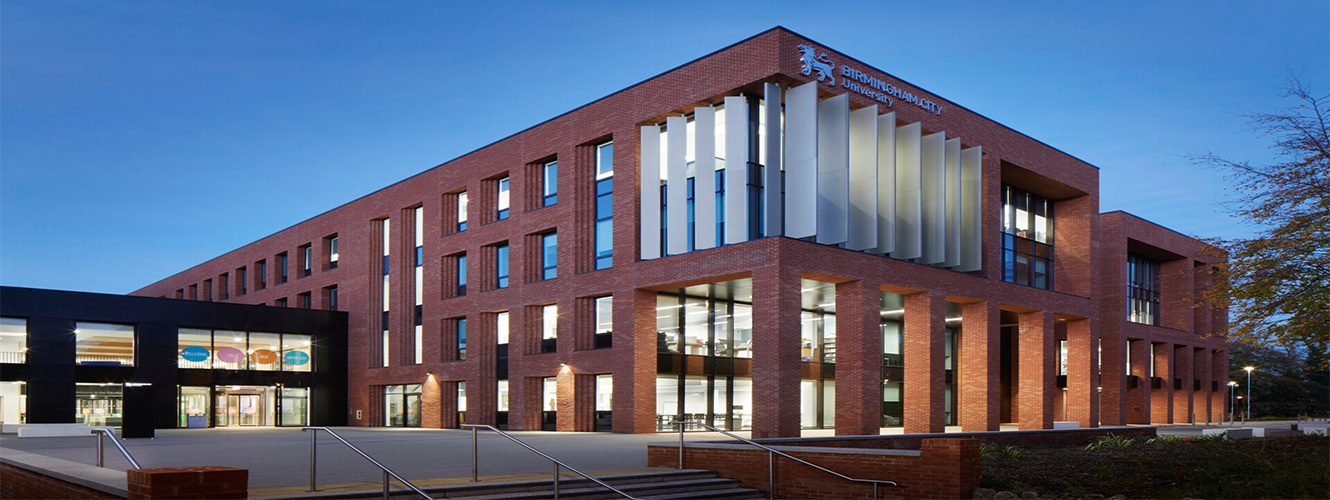UK70 MA Musicology Birmingham City University
-
THÔNG TIN CHUNG
Whatever your interests, our Musicology course gives you the unique opportunity to pursue your own research project within a lively and exciting Conservatoire environment.
Our flexible course enables you to mould a programme of study to your own needs and aspirations, and may be approached as preparation for a research degree in music.
It is important that a musicologist also develops complementary skills and/or knowledge outside their specialism which will help equip them for a future career: professional musicologists typically find themselves, amongst other things, teaching, managing and administering; some even maintain parallel careers as professional performers or composers.
Therefore, we provide you with a choice of Professional Development Options (shared across our postgraduate programmes) alongside your musicological work to give you the opportunity to develop and/or expand your interests across a range of complementary areas.
The Conservatoire team—which comprises a large number of research-active staff—has a vast array of expertise, allowing us to supervise a wide range of projects, and we are particularly keen to attract those interested in pursuing Masters-level research in our specialist areas.
These include: Late Medieval Music; French Music of the 17th, 18th and 20th centuries; Italian Baroque Music; 18th and 19th Century British, Russian or Austro-Germanic Music; Contemporary Film and Television Music; Theory and Analysis; 20th-Century Music Theory and Analysis; and Music Critics and Criticism.
Royal Birmingham Conservatoire also hosts a significant collection of historical instruments and we welcome studies with a focus on performance practice and/or critical editing.
Recent research projects include:
- An exploration of Music Performance Anxiety in a Conservatoire Woodwind Department.
- The Music of Hans Zimmer, US Military Intervention and "The Other" in Film; the Sound of the Ungrievable.
- Easy Listening: Jerry Lanning and the BBC Radio Orchestra 1979-81.
- The Emergence and Evolution of the Piano Study in the Years 1797-1837.
- Voices from a Non-Place: An Investigation into Language, Space and the Sung Voice.
- The Lute and Non-Nobility in Elizabethan England.
- Alexei Stanchinsky (1888-1914): Context and Influences.
- Clara Schumann as Pedagogue.
- Italian Film Music During the 1930s: Political Appropriation and Socioeconomic Agendas.
- Constructive or Destructive? Assessing the Impact of Feedback in Instrumental Piano Lessons.
-
Irish Rebel Music 1969-1995: Appropriation and Hidden(?) Agendas.
Our MA Musicology course can be studied as a standalone course, but it is also intended to help prepare you for a research degree.
-
CƠ HỘI NGHỀ NGHIỆP
Our aim is to prepare you for employment, giving you the knowledge, skills and confidence to succeed in your chosen branch of the music profession. This will give you a head-start in meeting the challenges involved in becoming a professional musician in the 21st century.
We also offer you guidance in making choices on your programme by encouraging you to consider your future plans, as well as your priorities. This will ensure that your decisions are strategic in relation to your professional development and future employability.
- ĐIỀU KIỆN ĐẦU VÀO
- ĐIỀU KIỆN NGÔN NGỮ
- HỌC BỔNG
- ĐỊA ĐIỂM
Tóm tắt
-
Phí ghi danh
0
-
Độ dài khoá học
1.5 năm
-
Kỳ nhập học
Tháng 9
Phí Cơ Bản
-
Loại Tiền
-
Học Phí
Trên khoá học -
Phí Sinh Hoạt
Trên khoá học -
Tổng







